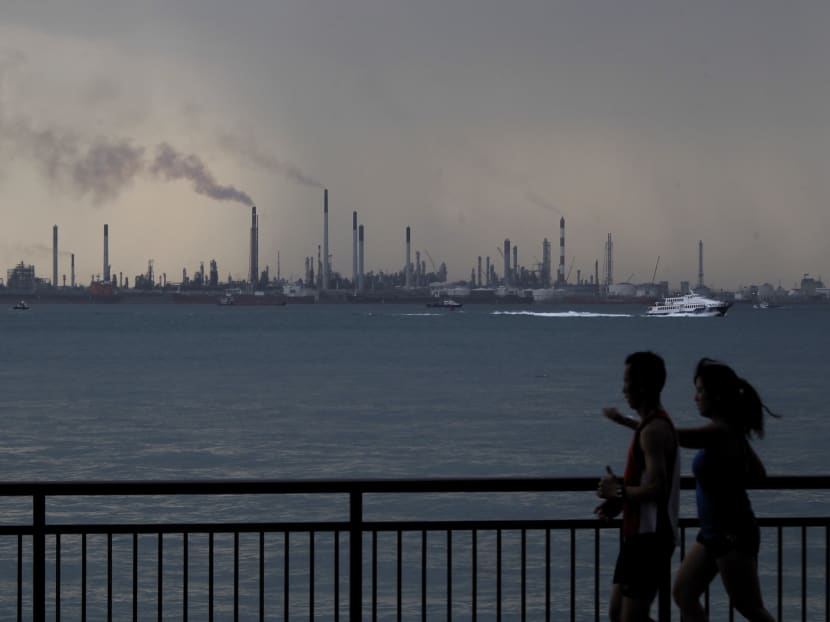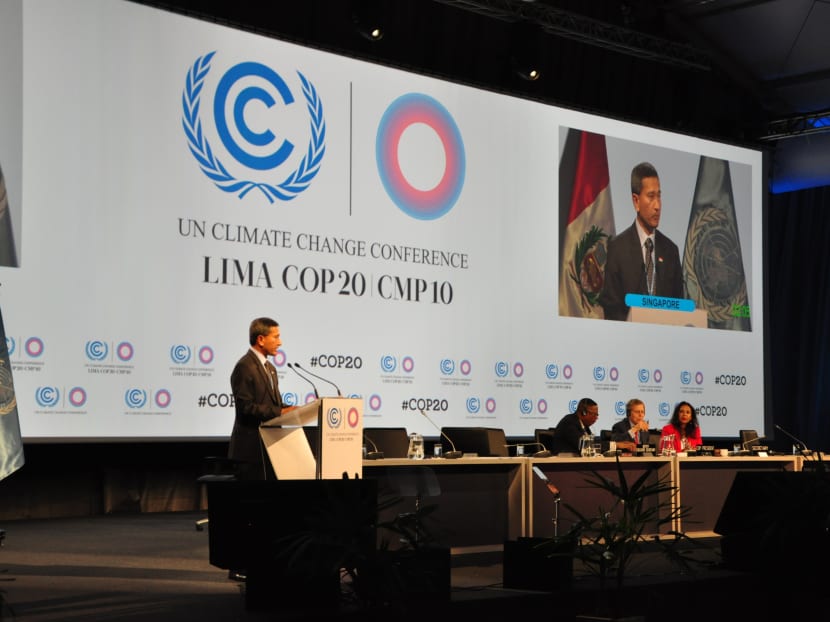Singapore’s carbon intensity level decreases by 30 per cent
SINGAPORE — Singapore’s carbon intensity — the amount of carbon dioxide emissions per GDP dollar — fell by 30 per cent between 2000 and 2010, much more than the global average decrease of 0.12 per cent in the same period, noted Minister for the Environment and Water Resources Vivian Balakrishnan today (Dec 10).


SINGAPORE — Singapore’s carbon intensity — the amount of carbon dioxide emissions per GDP dollar — fell by 30 per cent between 2000 and 2010, much more than the global average decrease of 0.12 per cent in the same period, noted Minister for the Environment and Water Resources Vivian Balakrishnan today (Dec 10).
Speaking at the United Nations Climate Change Conference in Lima, Peru, Dr Balakrishnan also noted how Singapore has been generating relatively low levels of carbon emissions per GDP dollar in the world, where it was ranked 113th out of 140 countries.
In the Biennial Update Report — a summary of the country’s actions to mitigate climate change and its effects — that Singapore had just submitted, it noted that the switch to a cleaner fuel mix, from fuel oil to natural gas, was one of the key policy initiatives that resulted in this decrease in carbon intensity levels.
Natural gas has lower carbon content per unit of electricity generated and the proportion of Singapore’s electricity generated by it increased from 26 per cent in 2001 to 84 per cent in 2012.
Other factors that helped lower carbon intensity levels include introducing various schemes that have promoted energy efficiency, such as the Green Mark Scheme for buildings and the Grant for Energy Efficient Technologies for industry.
The conference aims to lay the foundation for a new climate change agreement that will have to be finalised at the next UN Climate Change Conference in Paris next year.
In his speech at the conference, Dr Balakrishnan stressed the need to build momentum for the Paris conference and the importance of encouraging universal participation and recognising each country’s unique national circumstances.
Reaffirming Singapore’s commitment towards dealing with climate change issues, he also cited the recent launch of the Sustainable Singapore Blueprint 2014 as an example of the country’s plans in areas such as energy efficiency and climate resilience.






